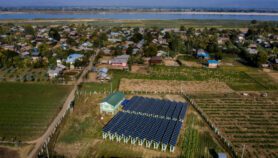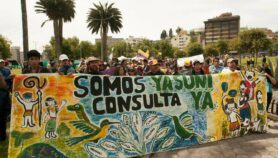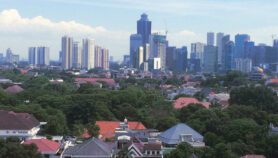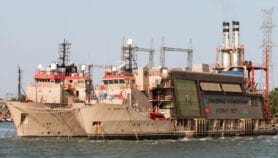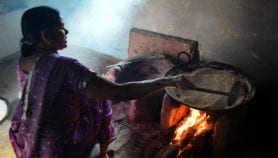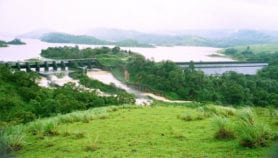By: Hazem Badr
Send to a friend
The details you provide on this page will not be used to send unsolicited email, and will not be sold to a 3rd party. See privacy policy.
[CAIRO] US concerns that scientists formerly employed in Libya’s nuclear and chemical weapons programmes could sell their dangerous knowledge to other countries have been dismissed by nuclear proliferation experts in the region.
Many Libyan nuclear scientists were ‘demobilised’ after the country’s nuclear programme was dismantled in 2003 and have been working in other sectors, supported by US$2 million a year from the US Cooperative Threat Reduction Plan.
But the plan seems to have been on hold since the conflict in Libya started in February, raising concerns in Washington, DC, that the country’s nuclear experts may re-engage with weapons programmes.
"I am confident that there are a number of Libyans who were involved in the programme who had a great deal of knowledge, and it is knowledge that one has to be concerned about when it comes to starting up nuclear weapons programmes," former US ambassador Robert Joseph, the chief negotiator in talks to end Libya’s nuclear weapons programme, told the Associated Press (AP) last month (9 March).
"And believe me, those experts could have been very useful to the Syrians or others who might be going down the nuclear path," he said.
David Albright, president of the Institute for Science and International Security, told the AP that Libyan officials may have hidden nuclear materials or kept copies of plans when the weapons programme ended.
But several high-level experts from the region have told SciDev.Net that former members of the Libyan nuclear programme are no longer a threat.
The programme employed "not more than 20 scientists, and their knowledge in this field is not to be feared", said Tareq el-Nimr, head of the International Atomic Energy Agency (IAEA)-affiliated Radioactive Analysis Laboratories.
Mahmoud Barakat, former president of the Arab Atomic Energy Agency (AAEA), said that apart from some with "serious experience" who are now in the United States, Libya’s nuclear scientists are in "other research fields like medicine and green technology".
According to a former senior IAEA official, Yousri Abu Shadi, previously one of Libya’s nuclear scientists, the most notable Libyan nuclear scientists joined other organisations such as the IAEA.
Some "who don’t have knowledge to fear" are working on environmental research in Libya, and non-Libyan experts moved to the peaceful United Arab Emirates’ nuclear programme, he said.
The programme lacked the accomplishments and scope for making nuclear weapons, according to the former IAEA director Robert Kelley and an associate fellow at the Stockholm International Peace Research institute who visited all the sites in Libya thought to be used for nuclear weapons development. He called the programme "very disorganised and disjointed".
"They were working only in one technology area — the mechanics and engineering of [nuclear] centrifuges," he said, adding that, without the expertise in high explosives and hydrodynamics, this is not enough to make weapons.
Libyan opposition leader Shoukry Sanky told SciDev.Net that the Libyan nuclear programme was at the very early stages, so "we can’t say that we really had one".
Link to full article in the Associated Press
Additional reporting by Yojana Sharma.



